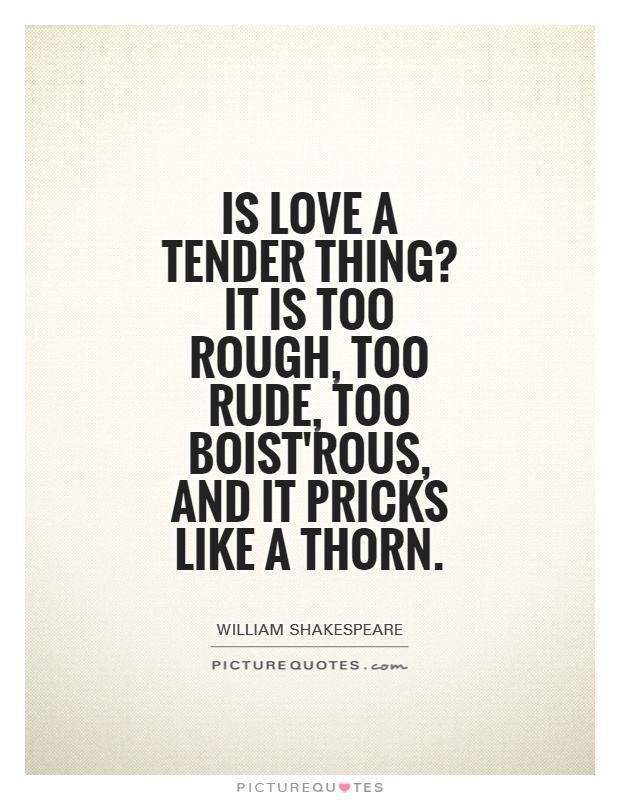Is love a tender thing? It is too rough, too rude, too boist'rous, and it pricks like a thorn

Is love a tender thing? It is too rough, too rude, too boist'rous, and it pricks like a thorn
In William Shakespeare's play, "Romeo and Juliet," the character of Romeo famously declares, "Is love a tender thing? It is too rough, too rude, too boist'rous, and it pricks like a thorn." This line encapsulates the complex and tumultuous nature of love as portrayed in the play.Throughout the story, we see how love can be both tender and harsh, gentle and violent. Romeo and Juliet's love is passionate and all-consuming, but it also leads to tragedy and heartbreak. Their love is tender in the sense that it is pure and genuine, but it is also rough and boisterous in the way it drives them to extreme actions.
The idea that love can be both tender and rough is a recurring theme in Shakespeare's works. In "A Midsummer Night's Dream," the character of Helena describes love as "cruel" and "unkind," highlighting the pain and suffering that can come with it. Similarly, in "Othello," the character of Desdemona experiences the destructive power of love when it leads to jealousy and betrayal.
Shakespeare's exploration of love as a complex and multifaceted emotion reflects the reality of human relationships. Love can bring joy and happiness, but it can also bring pain and sorrow. It can be tender and gentle, but it can also be rough and violent. It is a force that can uplift and inspire, but it can also destroy and devastate.
Ultimately, Shakespeare's portrayal of love as both tender and rough serves as a reminder of the complexities of the human heart. Love is not always easy or straightforward; it can be messy and complicated. But despite its challenges, love remains a powerful and transformative force that shapes our lives in profound ways.












 Friendship Quotes
Friendship Quotes Love Quotes
Love Quotes Life Quotes
Life Quotes Funny Quotes
Funny Quotes Motivational Quotes
Motivational Quotes Inspirational Quotes
Inspirational Quotes